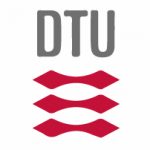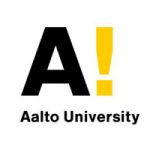项目介绍
If you wish to pursue your career as a materials scientist, DTU Engineering Technology at the Technical University of Denmark invites applicants for a 3-year PhD position on chemical sensing using metal-organic frameworks funded by the Independent Research Council. The position is affiliated with the Section for Mechanical Technology and will be under the supervision of Associate Professor: Jonas Sundberg. The project focuses on applied research to develop new technology for monitoring greenhouse gas emissions from lakes and wetlands. If successful, it will contribute to understanding how these ecosystems impact the global carbon cycle. As part of the project, you will develop as a researcher and deepen your technical skills. Furthermore, you will also have the opportunity to build a network, collaborate and disseminate your research at national and international conferences.
We seek a chemist interested in narrowing the gap between fundamental and applied research, where novel materials are implemented in functional prototypes, eventually leading to technology implementation. The research group broadly works within materials engineering, specifically the application of porous materials for adsorption, separation technology, and chemical sensing. The group is part of a larger cross-disciplinary team of researchers focusing on materials science, mechanical engineering, fluid dynamics and control systems. Active collaboration is expected with internal and external partners across DTU, as well as with national and international universities. Currently, the section are undergoing a transformation with increased focus on research, so with us you get the chance to join a young research group within materials research. You will be part of the section’s vision of striving to be a recognized player within the fields of mechanical and materials engineering to provide solutions, and work at implementations, for the industry and society in the transition towards increased sustainability.
Our section is diverse in nationalities, personality types, and career paths. We enjoy collegial idea generation, feedback and cooperation in an informal and trustful working environment. The group actively promotes social activities to build a strong community network. Furthermore, we regularly enjoy social activities together outside of working hours.
Responsibilities and qualifications
The project aims to study the application of metal-organic thin films for the analyte recognition of methane and carbon dioxide in the aqueous phase. This will be achieved by developing protocols for the growth and deposition of quartz resonators and studies on structure-property relationships in a custom-made flow setup. Ultimately, the goal is to create a sensor array for multivariate calibration and analysis of complex mixtures.
You are expected to:
- Conduct computational screenings of available material databases to find promising candidates based on physical and chemical properties.
- Develop methodologies to deposit thin films of MOF materials and characterise them using standard techniques, e.g., scanning-electron and atomic force microscopy, grazing incidence X-ray diffraction, and vibrational spectroscopy.
- Study their adsorptive response towards different analytes in the liquid phase to establish sensitivity, response rate and cross-selectivity.
- Use statistical methods for data processing to carry out multivariate calibration based on large-scale datasets obtained in the laboratory.
- Test and evaluate sensor prototype performance under simulated and real conditions.
Active dissemination of the results in scientific articles and participation in national and international conferences is integral to the job. Furthermore, participation in supervising B.Eng., B.Sc., and M.Sc. students is expected.
You must have a two-year master’s degree (120 ECTS points) or a similar degree with an academic level equivalent to a two-year master’s degree.
More specifically, you have experience in one or more of the following:
- Wet-lab chemistry methodology.
- Metal-organic framework synthesis and characterisation (e.g., X-ray diffraction, spectroscopy, and elemental analysis).
- Thin-film growth and characterisation (e.g., Raman spectroscopy, XPS, scanning, and atomic force microscopy).
- Experience in programming for data analysis, e.g. using Python, is an advantage.
Approval and Enrolment
The scholarship for the PhD degree is subject to academic approval, and the candidate will be enrolled in one of the general degree programmes at DTU. For information about our enrolment requirements and the general planning of the PhD study programme, please see DTU’s rules for the PhD education.
We offer
DTU is a leading technical university globally recognized for the excellence of its research, education, innovation and scientific advice. We offer a rewarding and challenging job in an international environment. We strive for academic excellence in an environment characterized by collegial respect and academic freedom tempered by responsibility.
Salary and appointment terms
The appointment will be based on the collective agreement with the Danish Confederation of Professional Associations. The allowance will be agreed upon with the relevant union. The period of employment is 3 years.
The expected starting date is 1st of May 2025 (or according to mutual agreement). The position is a full-time position.
You can read more about career paths at DTU here.
Further information
Further information may be obtained from Associate Professor: Jonas Sundberg (jonsun@dtu.dk) or the head of the section, Associate Professor: Christian Kim Christiansen (chkch@dtu.dk)
You can read more about DTU Engineering Technology at www.engtech.dtu.dk
If you are applying from abroad, you may find useful information on working in Denmark and at DTU at DTU – Moving to Denmark. Furthermore, you have the option of joining our monthly free seminar “PhD relocation to Denmark and startup “Zoom” seminar” for all questions regarding the practical matters of moving to Denmark and working as a PhD at DTU.
Application procedure
Your complete online application must be submitted no later than 23 January 2025 (23:59 Danish time).
Applications must be submitted as one PDF file containing all materials to be given consideration. To apply, please open the link “Apply now”, fill out the online application form, and attach all your materials in English in one PDF file. The file must include:
- A letter motivating the application (cover letter)
- Curriculum vitae
- Grade transcripts and BSc/MSc diploma (in English) including official description of grading scale
You may apply prior to obtaining your master’s degree but cannot begin before having received it.
Applications received after the deadline will not be considered.
All interested candidates irrespective of age, gender, disability, race, religion or ethnic background are encouraged to apply. As DTU works with research in critical technology, which is subject to special rules for security and export control, open-source background checks may be conducted on qualified candidates for the position.
About DTU Engineering Technology
We work at the forefront of university-industry collaboration and develop tools and methods for technology implementation. We are organized in eight sections all focused on technology implementation, engineering technology and engineering education within a wide range of engineering fields.
Technology for people
DTU develops technology for people. With our international elite research and study programmes, we are helping to create a better world and to solve the global challenges formulated in the UN’s 17 Sustainable Development Goals. Hans Christian Ørsted founded DTU in 1829 with a clear mission to develop and create value using science and engineering to benefit society. That mission lives on today. DTU has 13,500 students and 6,000 employees. We work in an international atmosphere and have an inclusive, evolving, and informal working environment. DTU has campuses in all parts of Denmark and in Greenland, and we collaborate with the best universities around the world.
联系方式
电话: (+45) 45 25 25 25相关项目推荐
KD博士实时收录全球顶尖院校的博士项目,总有一个项目等着你!




